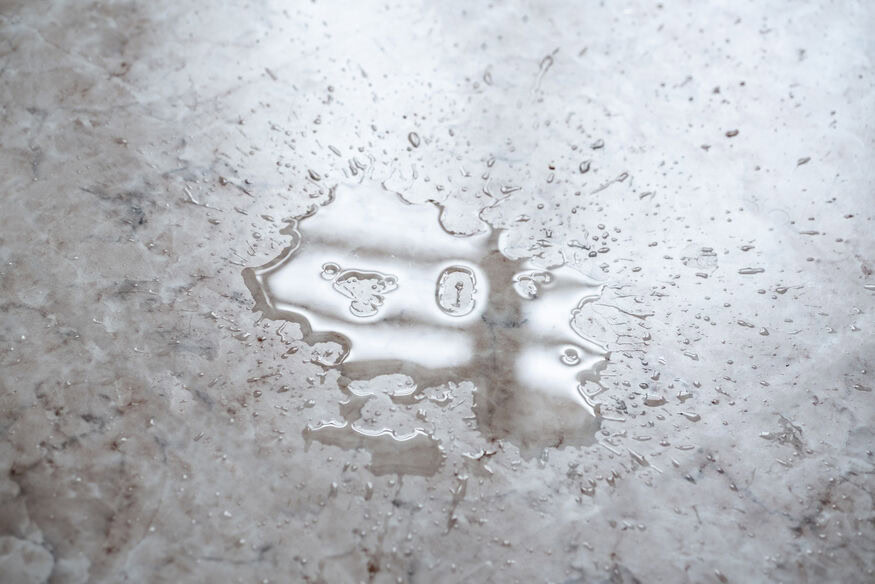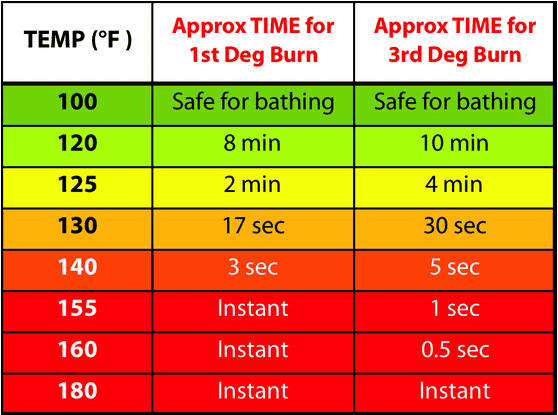It’s not a myth; water heater explosions are REAL!
As a business owner, you always have a lot on your plate. But even when you’re running around keeping your business afloat, safety should always be your number one priority.
Water heaters are 100% necessary these days. Like any machine, water heaters are usually safe and predictable when treated with care and caution. However, also like any machine, you could find yourself in a dangerous situation without proper maintenance.
A mishandled water heater is essentially a bomb. If you try to fix your commercial water heater yourself and you don’t know what you’re doing, or if someone tampers with your equipment, that water heater has the potential to explode with great force, resulting in serious damage to your building and your business, not to mention the potential loss of life!
Heed our advice and be sure to use professionals for your water heater maintenance services.
Yes, Water Heaters Can Explode
You don’t have to take my word for it. Just google ‘water heater explosions,’ and you’ll get thousands of telling results. Even the Discovery Channel’s MythBusters put this “myth” to the test – watch this 52-gallon residential heater shoot through two stories and the home’s roof like a rocket!
That is one serious explosion, and it’s fun to watch, as long as it’s not YOUR property that ends up destroyed and you’re not the mannequin on the second floor that gets sprayed with 200-degree water as a scorching bomb rips through the building!
While it’s a scary video, it’s important to note that the likelihood of a water heater explosion is pretty slim. It requires quite a few simultaneous failures and direct tampering of safety features to get a commercial water heater to that point.
Also, it’s important to note that the famous MythBusters episode aired over a decade ago, and many newer safeguards make your commercial water heater highly unlikely to reach this point. However, failing to care for your water heater properly can easily lead to water heater failure (which is a very real and frustrating problem).
Exploring the Worst-Case Scenario…
On MythBusters, they used a 52-gallon residential water heater. Your restaurant or apartment complex’s commercial water heater unit is likely twice as big. That means a potential explosion even more massive than MythBusters!
Take this absolutely tragic example of a commercial water heater explosion at an elementary school in Oklahoma. That water heater is said to have exploded with the force and effect of two pounds of dynamite, causing catastrophic damage.
How MythBusters Added the Drama
As you can see in the MythBusters video, the pounds per square inch gets up around 336 psi, meaning about 85,000 pounds of explosive force building up in the hot water tank that makes the water heater explode. By removing the safety mechanisms, as the water continues to heat, the steam is trapped in the hot water tank with nowhere to go.
Now, an important note: more than a demonstration of whether water heaters CAN explode, this is really a demonstration of why the safety mechanisms are so important in modern commercial water heaters. To perform this experiment, the folks at MythBusters disabled at least three key safeguards:
- The first safeguard is the thermostat, which sets the overall temp. If this fails, the heater doesn’t know when to stop heating, which leads to excessive heat and pressure.
- The second safeguard is the ECO temperature sensor (emergency cut-off, high-limit switch). When a thermostat fails and the heater keeps heating, this sensor kicks in when water reaches over 180 degrees, sending a message to the control board to shut everything down.
- Finally, the third safeguard is the T&P valve. The T&P valve is the final failsafe that releases at 210 degrees (max temp) or 150 PSI pressure. If this ALSO fails, then we get the boom.
Unlike water alone, steam is a gas that can be compressed. The hotter the water gets, the more steam is created, and the more it will continue to compress until something has to give. Eventually, the tank can’t hold all that high pressure, and it splits. Instantly, all that excess pressure is released, expanding rapidly to its original size. The result?
BOOM!

Water Heater Explosion Warning Signs
So, is your commercial water heater really at risk of an explosion? It would require some tampering or very specific circumstances (failure of all three safeguards). However, it’s a good example of why it’s important to call a professional at the first sign of water heater issues. And why you should NEVER tamper with the T&P valve.
There aren’t many warning signs that indicate a water heater has moved into the danger zone. The main concern is if your water is much hotter than it should be, it can mean that the safeguards (ECO probe, thermostat, and T&P valve) are all faulty. Call a professional right away!
That said, there are a few other signs that something is amiss with your commercial water heater. Keep an eye out for any of the following potential water heater explosion warning signs and if you notice them, be sure to call a technician as soon as possible.
- Faulty pressure valve: a leaky pressure valve is a concern, but it means the pressure is being released (so an explosion is unlikely). If you have any concerns with your pressure valve, call a technician.
- Water pooling under the water heater: again, this likely indicates a leak, which means that your water heater has an issue.
- Brown water: indicates an issue with the water heater.
- Popping noises: a common sign of sediment build-up, which can lead to other water heater problems.
Again, none of these problems are cause for panic (a water heater explosion is extremely unlikely), but rather, concern. If you notice them, you should reach out to us right away, and we’ll get someone on the case!
In most situations, the biggest risk is water heater failure—not as dangerous an explosion, of course—but still a situation that can leave your business in a lurch.
How Do You Prevent Water Heater Explosions?
First and foremost, if you have a problem with your commercial hot water equipment or are concerned about anything related to your commercial water heater, please give yourself some peace of mind and call a trained commercial water heater technician. If you don’t know who to call, you can always call us at Reliable Water Services (1-800-356-1444). We’re open 24 hours a day and 7 days a week to serve you.
Know Your T&P Valve
If all the safeguards fail and your water heater’s temperature and pressure (T&P) valve is broken or blocked, an explosion may occur. It’s almost impossible for this to happen without some human interference.
The T&P valve is also called the pressure relief valve, and that’s no coincidence! When a unit is running normally, the pressure release valve shouldn’t really do anything. It’s essentially a backup safety mechanism, acting as the final failsafe that allows your water heater to relieve pressure from overly high temperatures. T&P valves are set to release when the pressure builds up to 150 PSI or if the water hits 210 degrees; excessive pressure can build up to dangerous levels if this valve stops functioning correctly. Given enough pressure and no way to release it, the water heater will explode.
You might not believe this, but trust us, we’ve seen it before: NEVER replace a leaky T&P valve with a plug! Your heater must have a T&P valve to release excess pressure and lessen the risk of explosion.
You should check that the T&P valve is working and isn’t defective or damaged. Your water heater should also have a discharge tube running straight down the unit’s side. According to the code, this pipe must end no more than 6 inches from the ground. If there is no discharge pipe when you test the T&P valve, hot water will spray everywhere, so be careful!!
To check the T&P valve, simply lift the lever. Water should come out easily and flow down the pipe into the floor drain. You only need to check the valve about once a year. Overuse can weaken the spring inside the valve and cause it to trip more easily.
NEVER block a water heater’s T&P valve. If you notice water on the floor, this is likely a normal function of your water heater. (Unless it’s a LOT of water or it happens frequently, which is one of the most apparent signs of a problem!)
Again, it all comes down to common sense. If you’re concerned about your water heater or think it may need repair, do not touch it – call a professional plumbing company specializing in commercial water heater services. A trained technician is not just any old plumber; be sure your tech knows what they’re doing. Commercial water heating isn’t a DIY job!
For more commercial water heater safety tips, check out our handy DOs & DON’Ts graphic that you can hang up near your equipment for the safety of your staff, tenants/customers, and your building.
An Additional Hazard: Carbon Monoxide
One of the more common concerns is carbon monoxide. It can be much more dangerous (and likely) than an exploding water heater.
Improper ventilation is the most common cause of this deadly problem. If sections of the flue become misaligned, separated, or damaged, it can cause gas leakage and carbon monoxide poisoning. Being an odorless, invisible gas, carbon monoxide is a silent killer. Common symptoms of carbon monoxide poisoning include dizziness, headache, nausea, weakness, vomiting, chest pain, and confusion.
To avoid this problem, install carbon monoxide detectors throughout your establishment.
Always contact a trained professional if you suspect a problem or a carbon monoxide gas leakage. If you smell natural gas or rotten eggs, call your gas company immediately – they know the warning signs, have methods to detect and identify the source of gas leaks, and can safely shut off the gas until the problem gets fixed.
Water Heater Safety Tips
Pressure Rating:
- The ideal pressure rating is 75 PSI in standard operating conditions. Water heaters can handle up to 150 PSI before the TSI valve releases. It’s important to note that any pressure higher than 80 PSI can cause damage to your equipment and fixtures. Two times the maximum pressure rating will turn your water heater into a rocket (but you’d need to take it over 300 PSI).
Temperature Safety:

- Do not turn your water heater’s temperature to 180˚F. Although this has become a fairly common practice, it’s not recommended or safe.
- If you need your water to reach 180˚F for sanitation purposes, it is better to use a booster heater than turn it to 180˚F. Doing so will risk instant burns if water that hot comes out of your tap. It also causes more wear and tear on your equipment.
- Your water heater’s temperature should NEVER exceed the maximum temp of the T&P release: 210˚F. Any higher can result in pressure levels exceeding the unit’s safety limits. This much pressure can result in a water heater explosion and extensive damage.
- Do not store anything near or around your water heating unit, especially flammable materials.
- Take preventative measures like installing a carbon monoxide detector near the unit as an added safety measure.
We cannot stress this enough: Always rely on a trained water heater professional! Water heaters are not a DIY project unless you have proper training. While exploding water heaters may be great for reality TV and science demonstrations, hot water is nothing to toy with.
Please note: this is not a comprehensive commercial water heater safety guide. Please contact your manufacturer or installer for safety questions regarding residential water heaters.